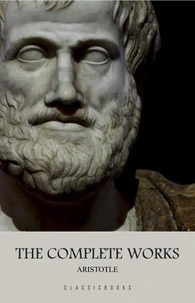Aristotle's "Categories" (??????????) serves as a foundational text in the field of philosophy and logic, presenting a systematic classification of various entities and their attributes. Written in a direct yet sophisticated style, Aristotle employs a syllogistic framework to explore the principles of categorization, facilitating a deeper understanding of how language relates to reality. The work is seminal within the context of ancient Greek philosophy, particularly influencing metaphysics and epistemology by delineating the categories of being, substance, quantity, quality, relation, and more, thereby establishing a vital groundwork for future philosophical inquiry.
Aristotle, a pupil of Plato and a prolific thinker of the fourth century BCE, was motivated to write "Categories" during his quest to categorize knowledge and understanding. His philosophical pursuits were shaped by his commitment to empirical observation and logical reasoning, reflecting his belief that the natural world could be systematically understood through precise definitions and classifications.
Aristotle's engagement with the Socratic traditions of inquiry channels his explorations into the nature of existence and language, demonstrating his profound influence on both philosophy and the sciences. This essential work is highly recommended for readers interested in philosophy, linguistics, or the development of logic. "Categories" not only illuminates the complexities of categorization in thought and language but also provides insights that remain relevant in contemporary discussions in epistemology and ontology.
Engaging with Aristotle's text offers an invaluable opportunity to grasp the roots of Western philosophical tradition and the ongoing significance of categorization in human thought.
Aristotle's "Categories" (??????????) serves as a foundational text in the field of philosophy and logic, presenting a systematic classification of various entities and their attributes. Written in a direct yet sophisticated style, Aristotle employs a syllogistic framework to explore the principles of categorization, facilitating a deeper understanding of how language relates to reality. The work is seminal within the context of ancient Greek philosophy, particularly influencing metaphysics and epistemology by delineating the categories of being, substance, quantity, quality, relation, and more, thereby establishing a vital groundwork for future philosophical inquiry.
Aristotle, a pupil of Plato and a prolific thinker of the fourth century BCE, was motivated to write "Categories" during his quest to categorize knowledge and understanding. His philosophical pursuits were shaped by his commitment to empirical observation and logical reasoning, reflecting his belief that the natural world could be systematically understood through precise definitions and classifications.
Aristotle's engagement with the Socratic traditions of inquiry channels his explorations into the nature of existence and language, demonstrating his profound influence on both philosophy and the sciences. This essential work is highly recommended for readers interested in philosophy, linguistics, or the development of logic. "Categories" not only illuminates the complexities of categorization in thought and language but also provides insights that remain relevant in contemporary discussions in epistemology and ontology.
Engaging with Aristotle's text offers an invaluable opportunity to grasp the roots of Western philosophical tradition and the ongoing significance of categorization in human thought.

 , qui est-ce ?
, qui est-ce ?